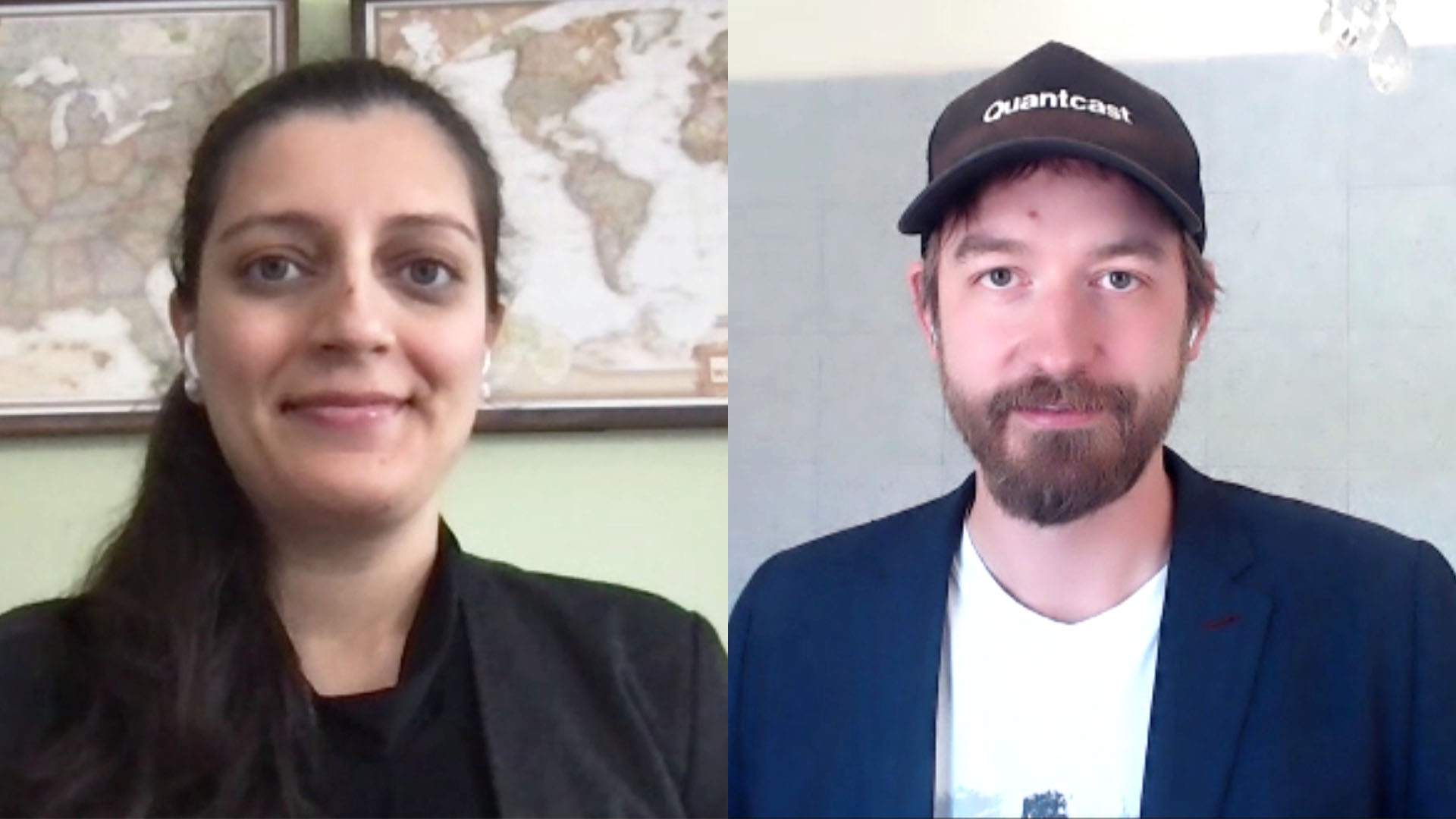 APPS
APPS
 APPS
APPS
 APPS
APPS
Media and publishing used to be the domain of specialized companies who controlled the content. The internet broke that model, and today anyone can go online and publish a blog, a podcast, or star in their own video.
But the big tech companies want to take control, closing content into walled gardens. But that’s not what the majority of publishers, big or small, want.
“We get to hear the perspectives of the publishers at every scale, and they consistently tell us the same thing: They want to more directly connect to consumers; they don’t want to be tied into these walled gardens which dictate how they must present their content and in some cases what content they’re allowed to present,” said Dr. Peter Day (pictured, right), chief technology officer at Quantcast Corp.
Day and Shruti Koparkar (pictured, left), head of product marketing at Quantcast, spoke with John Furrier, host of theCUBE, SiliconANGLE Media’s livestreaming studio, during The Cookie Conundrum: A Recipe for Success event. They discussed the importance of smart technology for the post-cookie future of digital marketing. (* Disclosure below.)
Quantcast has cast itself as a champion of the open internet as it sets out to find the middle ground between the ability to scale provided by walled gardens and access to individual-level user data. Urgency for the quest is provided by Goliath company Google, which announced it will no longer be supporting third-party cookies on its Chrome browser as of January 2022.
“Our approach to a world without third-party cookies is grounded in three fundamental things,” Koparkar stated. First is industry standards: “We think it’s really important to participate and to work with organizations who are defining the standards that will guide the future of advertising,” Koparkar said, naming IAB Technology Laboratory’s Project Rearc and Prebid as open projects Quantcast is involved with.
The company’s engineering team also participates in meetings with the World Wide Web Consortium (W3C) to keep on top of what is happening with web browsers and to monitor what Google is up to with its Federated Learning of Cohorts (FLoC) project.
The second fundamental principle to Quantcast’s strategy is interoperability. With multiple identity solutions from Unified ID 2.0 to FLoC already existing, and more on the way, “We think it is important to build a platform that can ingest all of these signals, and so that’s what we’ve done,” Koparkar said referring to the release of Quantcast’s intelligent audience platform.
Innovation is the third principle. Being able to take in multiple signals, not only IDs and cohorts, but also contextual first-party consent, time, language, geolocation and many others is increasingly important, according to Kopackar.
“All of these signals can help us understand user behavior, intent and interests in absence of third-party cookies,” she said.
But these signals are raw, messy, complex and ever-changing. “What you need is technology like AI and machine learning to bring all of these signals together, combine them statistically, and get an understanding of user behavior, intent and interest, and then act on it,” Koparkar stated. And the only way to bring them all together to obtain coherent understanding is through intelligent technologies such as machine learning, she added.
“The foundation of our platform has always been machine learning from before it was cool,” Day said. Many of the core team members at Quantcast have doctorate degrees in statistics and ML, which means it drives the company’s decision-making.
“Data is only useful if you can make sense of it, if you can organize it, and if you can take action on it,” Day said. “And to do that at this kind of scale it’s absolutely necessary to use machine learning technology.”
Watch the complete video interview below, and be sure to check out more of SiliconANGLE’s and theCUBE’s coverage of The Cookie Conundrum: A Recipe for Success event. (* Disclosure: TheCUBE is a paid media partner for The Cookie Conundrum: A Recipe for Success event. Neither Quantcast Corp., the sponsor for theCUBE’s event coverage, nor other sponsors have editorial control over content on theCUBE or SiliconANGLE.)
Support our mission to keep content open and free by engaging with theCUBE community. Join theCUBE’s Alumni Trust Network, where technology leaders connect, share intelligence and create opportunities.
Founded by tech visionaries John Furrier and Dave Vellante, SiliconANGLE Media has built a dynamic ecosystem of industry-leading digital media brands that reach 15+ million elite tech professionals. Our new proprietary theCUBE AI Video Cloud is breaking ground in audience interaction, leveraging theCUBEai.com neural network to help technology companies make data-driven decisions and stay at the forefront of industry conversations.